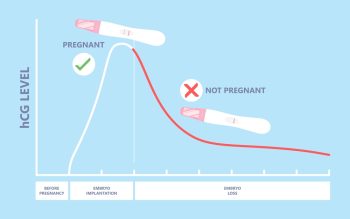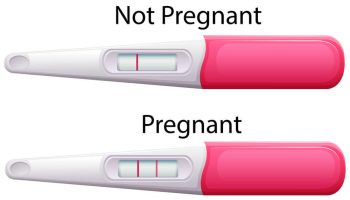For women who are trying to conceive, the anticipation of finding out whether or not they are pregnant can be overwhelming. How soon can pregnancy be detected?
It can be tempting to take a pregnancy test as soon as possible, but it’s important to know that not all pregnancy tests are created equal.
In this comprehensive guide, we will cover the different types of pregnancy tests available, the best time to take a pregnancy test, and other factors that can affect the accuracy of pregnancy tests.
Understanding the Different Types of Pregnancy Tests
The first thing to understand is that not all pregnancy tests are created equal. There are two main types of pregnancy tests: urine tests and blood tests.
Urine tests are the most common type, and they work by detecting the presence of the hormone human chorionic gonadotropin (hCG).
Blood tests can detect pregnancy earlier than urine tests because they can detect smaller amounts of hCG, but they are typically only used in specialized situations.

When Can Pregnancy Be Detected: Timing and Accuracy
So, how soon can pregnancy be detected ? The answer depends on the type of test you take.
Most urine tests claim to be able to detect pregnancy as early as 5-6 days before your missed period, but the accuracy of these tests is highly variable.
In general, it’s best to wait until you have missed your period before taking a pregnancy test, as this will increase the accuracy of the test.

Factors Affecting the Accuracy of Pregnancy Tests
In addition to the type of test and the timing of the test, there are other factors that can affect the accuracy of pregnancy tests.
One of the biggest factors is the sensitivity of the test. Some tests are more sensitive than others, meaning they can detect lower levels of hCG.
If you are taking a test early, it’s important to choose a test that is highly sensitive. Another factor to consider is the brand of the test.
Some brands are known to be more reliable than others, so it’s a good idea to do some research before choosing a test.
Potential for False Negative Results in Pregnancy Tests
It’s also important to keep in mind that pregnancy tests can produce false negative results.
This can happen if you take the test too early, if you don’t follow the instructions properly, or if you have certain medical conditions that can affect the accuracy of the test.
If you get a negative result but still suspect you might be pregnant, it’s a good idea to wait a few days and take another test.

In conclusion, pregnancy tests can detect pregnancy as early as 5-6 days before your missed period, but the accuracy of these tests is highly variable.
It’s best to wait until you have missed your period before taking a test, and to choose a test that is highly sensitive and from a reliable brand.
Keep in mind that false negative results can happen, so if you still suspect you might be pregnant after a negative test, it’s a good idea to wait a few days and take another test.
Remember to take care of yourself during this exciting time and to reach out to your healthcare provider if you have any questions or concerns.


